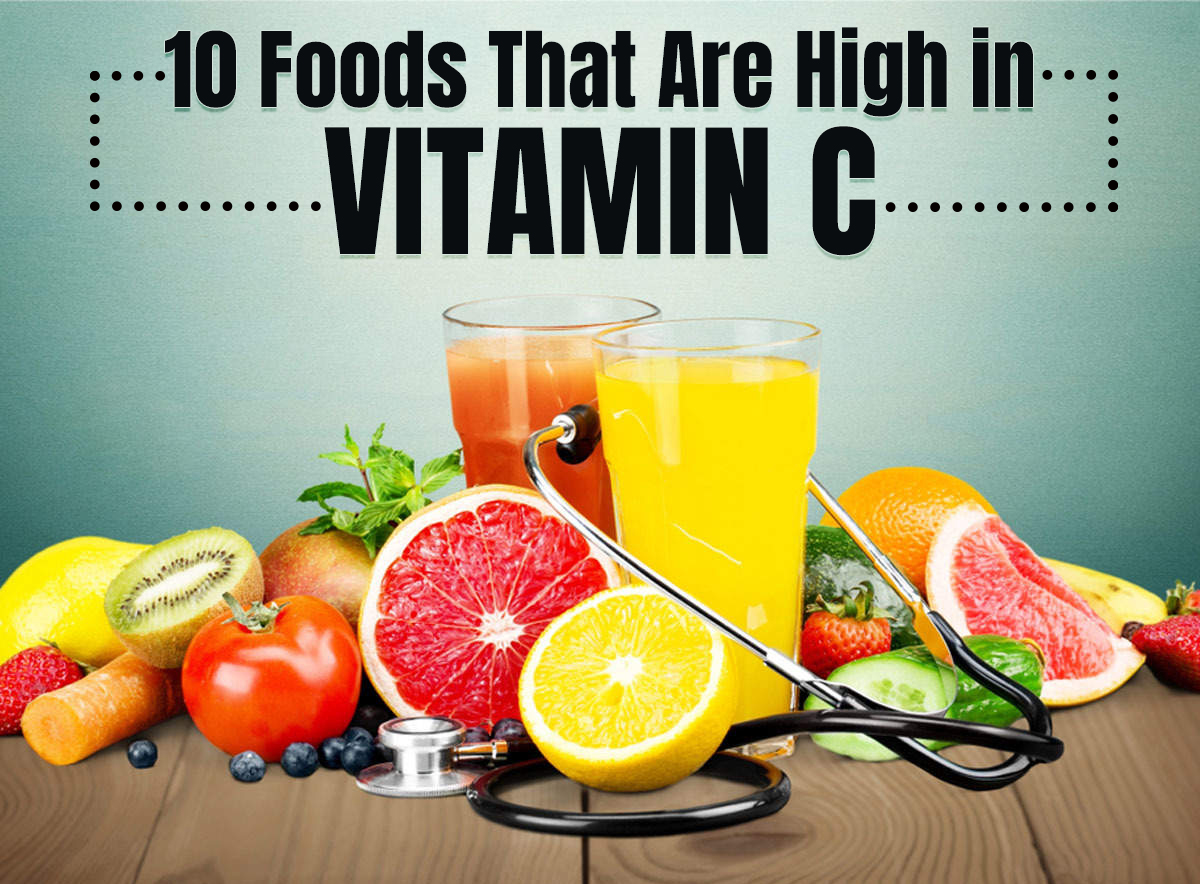What are the best foods for vitamin C?
Vitamin C, like zinc and vitamin A, also assists boost your immune system. Protect cells against oxidative stress, which in turn protects against several diseases, including cancer.
Fruits and vegetables are the most significant food sources of vitamin C. Eating various these healthful foods will help people meet their daily requirements.
Vitamin C, also called ascorbic acid, plays many vital roles in the body. In particular, it is key to the immune system, supporting prevent infections and fight disease.
The social body does not store vitamin C, so people need to make this nutrient from their diet each day. It closes in water, and any excess leaves the body in urine.
Vitamin C, also known as ascorbic acid, is arguably the best-known immune-boosting vitamin and essential for the body’s natural functioning. It is a powerful antioxidant that helps protect cells from damage caused by free radicals that could contribute to cardiovascular disease, cancers, and other diseases.
As it’s a water-soluble vitamin, our bodies, unfortunately, can’t make their vitamin C or store it; for, we want to fuel up with this vital vitamin every day to guarantee that we don’t have a deficit.
Think you smoke or are exposed to pollution, drink caffeine in any form, are under stress, recover from illness or surgery, use aspirin regularly, or are over the age of 55. In that case, you’re more likely to suffer from vitamin C loss. If you damage immediately, are sensitive to viruses and colds, lack energy, have gums that bleed frequently, and have nosebleeds often, you need more vitamin C.
Chili peppers
A half-cup of cut or diced chili peppers delivers 107.8 mg of vitamin C. Plus, researchers from the University of Buffalo found that capsaicin, the compound that gives chili peppers hot, may decrease joint and muscle pain.
Broccoli
This cruciferous veggie provides 132 mg of vitamin C plus a stroke of supplying fiber for just 30 calories per meal. Plus, a study reveals broccoli may have cancer-preventing qualities. When people study vitamin C, the most significant thing that (probably) gets to understanding is citrus fruit. So, it’s surprising to hear that some veggies have even more vitamin C than an orange—but it’s true! One cup of diced broccoli has 81 mg of vitamin C.
Bell peppers
Veggies can be excellent sources of vitamin C, too. Use bell peppers, for example. One common red bell pepper has about 152 mg of vitamin C. Green bell peppers don’t have as much—just 95 mg per one medium pepper, but that’s yet about 130 percent of your daily suggested consumption. Eat them raw or roasted.
Guava
Guava is a sweet-tasting exotic fruit that contains high levels of vitamin C: 228mg per 100g. Its close relations, papaya, mango, and star fruit, also add vitamin C, amongst other nutritional benefits.
Kiwi
The small kiwifruit is one of the world’s most nutritious fruits and includes very high vitamin C levels (70mg/100g), potassium, antioxidants, and omega-3 fatty acids. Kiwifruit should be eaten as soon as they are ripe and sliced just before being eaten, as leaving them standing could reduce their vitamin C levels.
Papaya
The papaya gives 62mg of vitamin C per 100g portion. It is also a large source of other antioxidant nutrients such as carotenes and flavonoids; and vitamin A and folate. Papaya thought to take about a decreased risk of colon and cervical cancer. This tropical fruit also includes the enzyme papain, a valuable aid to digestion and can improve our body’s enzyme gain the maximum nutritional value from the foods we eat. Cenforce 200mg and Tadacip 20 reduce your danger of male erectile dysfunction.
Orange
Oranges, together with other citrus fruit, are probably the best-known source of vitamin C. It is an invaluable weapon for winter colds and flu. The orange’s vitamin C content is 50mg/100g and is known to support the immune system and reduce some diseases’ risk. Citrus fruits like orange can also increase blood circulation and reduce blood cholesterol levels. Hold in mind that it’s more useful to eat the fruit than to drink the juice.
Carrots
A great dog snack crunchy, naturally sweet, and most dogs like them. Carrots loaded with carotenoids, fiber, vitamin C and K (needed for blood clotting), as well as potassium. They have magnesium, manganese, B vitamins, and phosphorus, which are required for energy production, among other things.
Sweet lime
Sweet lime juice is a valuable source of vitamin C (ascorbic acid), which is essential for many natural functions and plays an integral role in our overall health. It is a water-soluble vitamin, which we cannot store in our body, and hence we want it from our diet every day, and mosambi juice is an excellent way to make your daily dose of Vitamin C. More importantly, Aurogra 100 and Malegra 100 promote an erection only whereas used in the presence of complete physical arousal.
Pineapple
When it happens to nutrients, vitamin C is one of the most well-known. This vitamin is a powerhouse from stimulating the immune system to improving your mood to reducing heart disease risk. Even better? No high supplements are required here – your daily dose of vitamin C, or ascorbic acid, can be obtained through delicious and affordable fruits and vegetables like pineapple. This tropical fruit contains more vitamin C per meal than citrus fruits like grapefruits and oranges, presenting an attractive option for increasing your daily nutrient loss.








